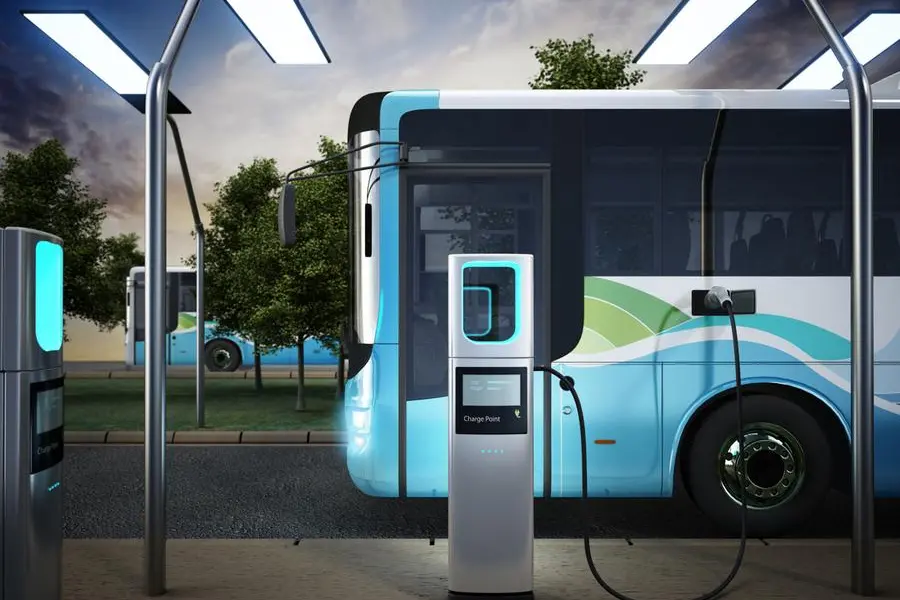PHOTO
Doha, Qatar: A top official said that the Ministry of Transport’s project to transition Qatar’s public transport system to electric vehicles has reduced approximately 43 million kilograms of carbon emissions.
“The electric buses also have almost zeroed the noise pollution in a way that the manufacturers had to create an artificial bus sound to alert pedestrians that an electrified vehicle is headed in their direction,” said Mowasalat (Karwa) Public Transport Director Ahmed Al Binali.
Speaking to Qatar Radio yesterday, he said that Mowasalat (Karwa) is operating over 900 electric buses across the country with an ambitious goal to convert all public transport vehicles into electric by 2030 following Qatar National Vision 2030.
“There are about 30 electric limousines and almost all Mowasalat (Karwa) taxis are hybrids powered by electricity and petrol. About 74 percent of the public transport fleet of the country has become electric. We are offering services for public transport across the country including Metro link services,” said Al Binali.
He said that Mowasalat (Karwa) started using electric buses in 2022 for public transit which helped reduce about 8 million kilogram carbon footprint. “More electric buses were added in 2023 which contributed to cutting carbon emission by 43 million kg,” said Al Binali. He said that the figure shows the benefit of electric buses in preserving the environment as part of the sustainability goal of Qatar.
Speaking about autonomous vehicles, he said that Mowasalat (Karwa) tested autonomous bus three times in Doha.
“We tested an autonomous bus at Lusail Depot where some people were transported safely. Another test was made at Qatar Foundation for a week where we had very exciting experiences,” said Al Binali. “We wish to have autonomous buses operating across the country.”
To a question about localising technologies, he said that Mowasalat (Karwa) is coordinating with the Ministry of Transport on a weekly basis to implement the vision of the ministry and the country in this regard and other projects.
Speaking about the expansion of Mowasalat (Karwa) fleet to meet the growing demand of the country, he said: “We are coordinating with a company in Oman for making buses. We are also working with a Chinese company to provide electric buses.”
Regarding the economic benefit of electric buses, he said the electric buses powered by battery have low maintenance costs compared to diesel-powered buses.
He said that electric buses cannot show economic benefit in the first year but after three or four years they save operation cost significantly due to low maintenance.
With a focus on sustainable mobility, Mowasalat (Karwa) has electrified a large portion of its bus fleet, ensuring zero emissions and minimal noise pollution.
The electric buses are fully customised to handle the demands of street and weather conditions in Qatar and are equipped with a 350 kWh lithium-ion battery, the latest and safest proven battery technology in the automotive industry, with an average reach of more than 200km per full charge.
Strict compliance with the most comprehensive safety standards and a local inspection process ensures that the technical and operational aspects follow all regulations.
Mowasalat (Karwa) constantly pushes the agenda for digital solutions to improve operational efficiency, which is also a determining factor for cleaner transportation and a healthier environment for the community.
© Dar Al Sharq Press, Printing and Distribution. All Rights Reserved. Provided by SyndiGate Media Inc. (Syndigate.info).





















